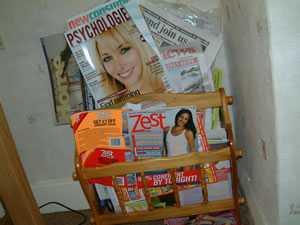A review (of sorts) and comments
I've just finished reading How to Write & Sell Your First Novel for the second time. I read it immediately after reading James N Frey's How to Write a Damned Good Novel (again for the second time).
I thoroughly enjoyed reading both books the first time, though I did not read one immediately after the other. The second time around, I have to admit to skimming some of the sections of Oscar Collier's book whilst James N Frey's book continued to educate and inspire me. Perhaps the two books are not quite aimed at the same market, and the format is different for sure.
The main benefit, for me anyway, of reading How to Write & Sell Your First Novel was the 'before they were famous' section on successful authors like Stephen King, John Grisham, John le Carré and others. The first time I read these accounts of how these writers overcame rejection after rejection but still succeeded in getting their first novel published (sometimes only after getting their 'second' novel published first) did truly inspire me.
So I've decided to post very small clips of this book, to share the wisdom. This book has definitely helped me believe that my writing a novel is possible.
WISDOM?
- Novelists are made, not born
- Write what you feel strongly about, even if it goes against the accepted norm [according to David Cornwell aka John le Carré]
- "What is a novel? A piece of yourself - but just a piece - not the whole picture. A novel is the tip of the iceberg. Never give it all away" [According to published novelist Steven Linakis.]
- Never give up. If you feel strongly about your writing, someone will like it and publish it. take a chance. Get it all out. Don't talk about it too much - your idea can wear thin... Your novel must have conflict - man against nature, man against man. Your protagonist must survive conflict.
- Learn by writing...
"Writing is a question of practicing and getting better. There are so many stories of writers who were rejected over and over again who clearly made themselves writers by being persistent. You never know what can happen."
What also comes across in the book is the importance many writers give to revision. In short, the writing begins when it's time to revise
Final book verdict: read James N Frey's book for a step-by-step 'how to' when it comes to writing a novel, and read Oscar Collier's book for a more rambling insight into writing but a fascinating look at how many successful authors overcame all obstacles to get their first novel published.

